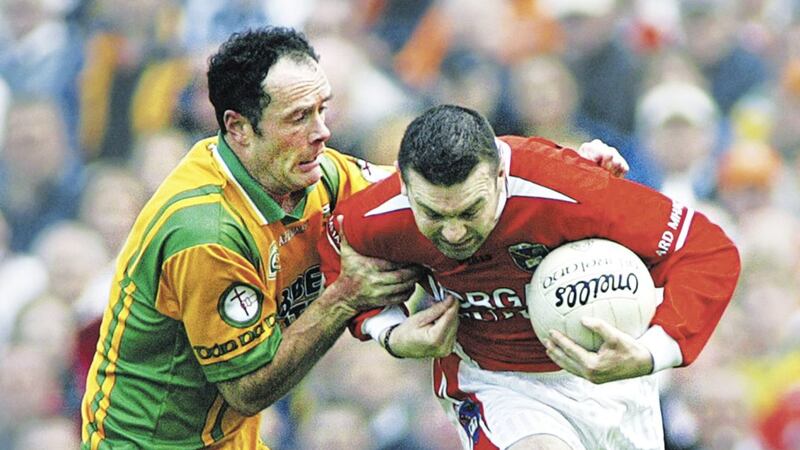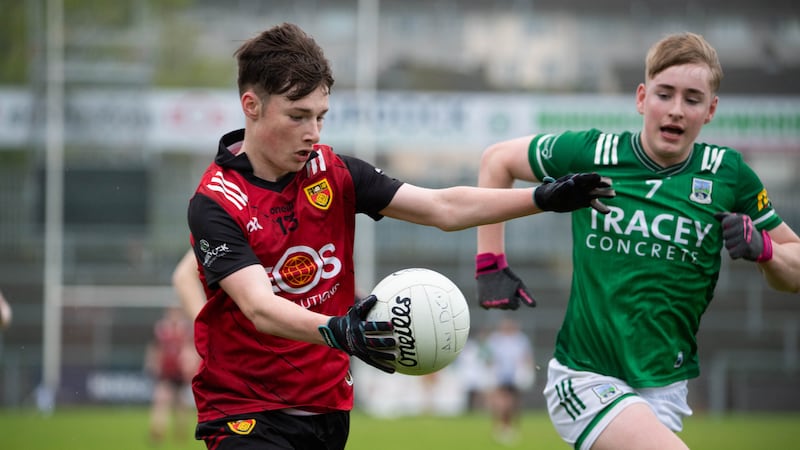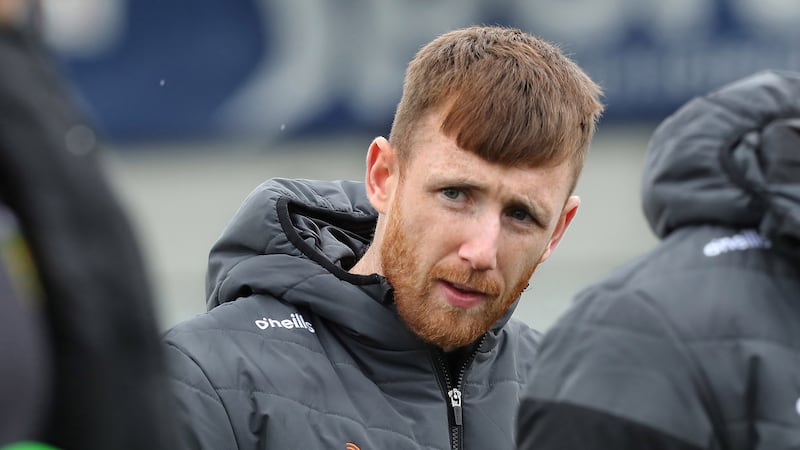Age: 43
Club: Ardara
Position: Half-back
When did you play for Donegal? 1995- 2007.
What do you do nowadays?
I’m a shopkeeper, we’ve a Centra store in Ardara. It’s been on the go for about 32 years now.
I actually qualified as a quantity surveyor in 1995 and I was working at that for three years, then my father was getting his first hip replaced so I said I’d take two weeks’ holiday to help him in the shop.
It was the longest two weeks’ holiday I ever took.
Are you still involved in Gaelic football?
I help out with the U10s at the club. It’s nice to be putting wee things you maybe picked up from different managers into play, and seeing a team developed. You’re just hoping it all works out for them, and what you’re telling them is good advice.
What do you remember about your first game for Donegal?
I made my debut against Meath in a League game down in Navan in the 1994-’95 season.
I wouldn’t be one for remembering a lot about games, but I remember a lot about that day. I was in college in Dublin at the time, playing for DIT on Saturdays, so I stayed about Dublin and went and met the Donegal panel in the Ardboyne Hotel in Navan.
Being a student and having no chance of playing, in my mind, I was stuffing myself with grub. I’ll never forget it, PJ McGowan came up to me after and says ‘you’re starting wing-back today’.
Well holy Christ, the colour must’ve gone out of my face. I ended up marking Colm Coyle and then Trevor Giles before the end of the game, but I did okay.
It’s funny though, when I look back my whole career is a blur. I couldn’t even remember what years we played Armagh in those Ulster finals. One year after another, it all rolled into one big lump.
What’s your best memory from your playing days?
Walking out in Croke Park and hearing the shout the year we played Dublin in the Championship [2002]. The noise just hit you and I just remember thinking ‘this is what it’s all about’.
When we came back from Dublin that day after the draw, there was only four of us on the bus. I’d be relaxed enough, just concentrating on myself, but maybe I should’ve said something. It’s maybe something I regret, not saying things more.
Beating Tyrone in the 2004 Ulster semi-final, the year after they had won the All-Ireland, was a special day too. They were flying high at that time and everything just came together for us.
And the worst?
That 1998 Ulster final against Derry. There’s still that thing inside me that says if I’d pushed out on [Dermot] McNicholl when he kicked that last ball into big Geoffrey McGonigle. He fed Brolly but if I’d stopped that ball going in from McNicholl, it might’ve been different.
Something just niggles at me that I should’ve been out closer to him.
If we’d won then, that team might’ve gone on to win two or three Ulster finals rather than get beat in four.
Biggest character you played with?
Brendan Devenney was a lively character. But then some of the quieter boys were very funny too, Noel McGinley, Michael Hegarty would be comical. They wouldn’t be as loud as Devenney, but it was great oul craic. We had some great sing songs on the way back from games, that sort of thing. Those memories sort of stick out.
Are you glad you played in your era rather than the modern day?
I’d have loved to have played under Jim McGuinness, where you won the ball and then just broke forward in numbers.
Any regrets?
Ah, you couldn’t but look back on four Ulster final defeats and not have regrets. It’s a hole in my career, and that’s the case for a lot of our boys, that we didn’t win an Ulster Championship with the players we had.
But it was one of those eras where Armagh had a brilliant team and Tyrone had a brilliant team. Pound for pound, in terms of players, we had as good backs and forwards, but the structure they had was away above us. They had a way of playing, we didn’t.
They had a set game-plan whereas we were basically free-styling. It was just ‘go out and enjoy your football and try your best’. We had footballers who, when they did that, would play unbelievably well.
But we lacked continuity, consistency, which is what a defined game-plan brings you. I said to Jim McGuinness ‘it’s a pity you weren’t about when we were playing’. If we’d that type of structure, with the players we had, who knows what we could’ve achieved.








